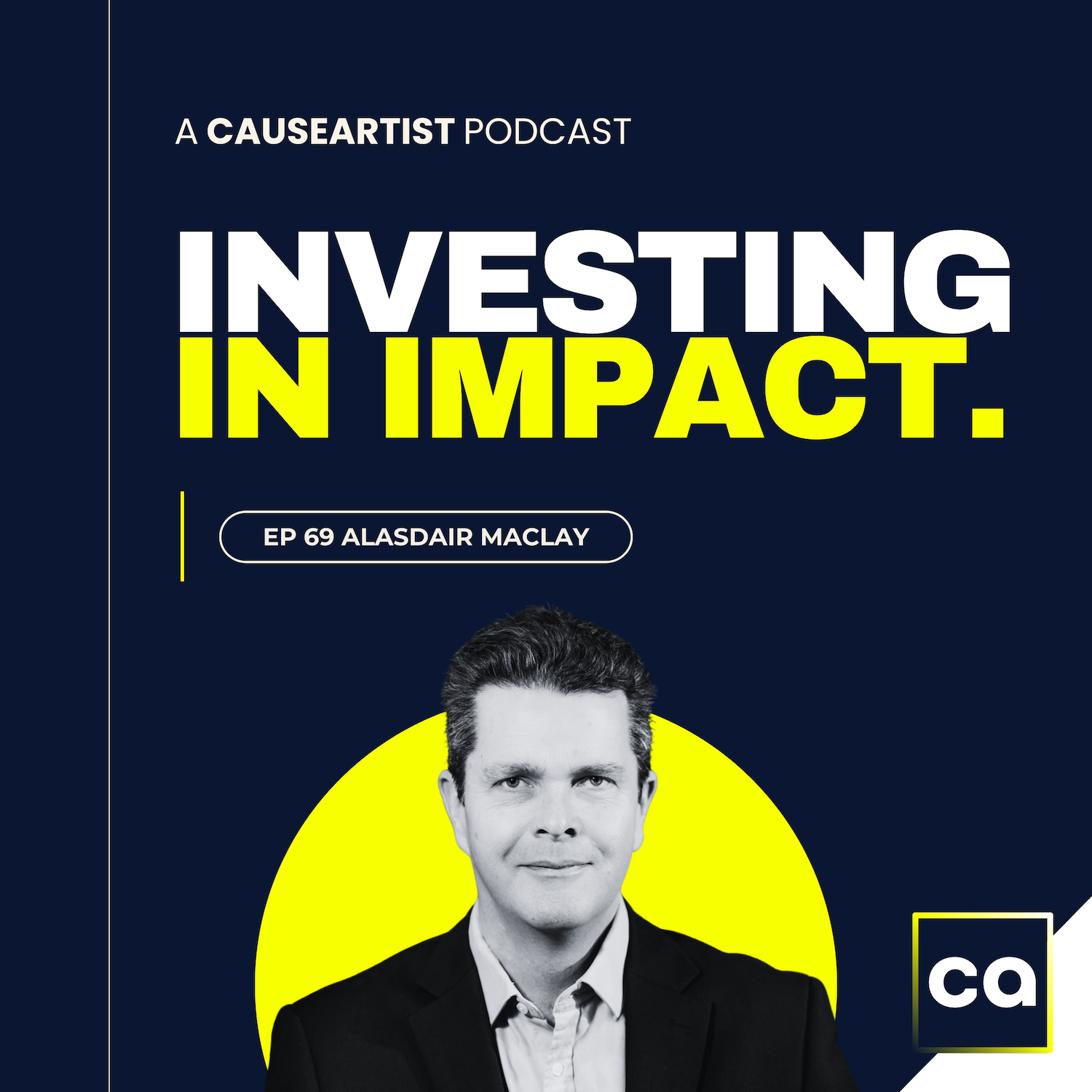In Episode 69 of the Investing in Impact podcast, I speak with Alasdair Maclay, Chief Strategy Officer at GSG Impact, on impact data and strategic leadership in Impact Investing.
About Alasdair
Alasdair Maclay is the Chief Strategy Officer at GSG Impact, where he serves on the Executive Committee and oversees the organization’s strategy, communications, development, and funding.
From 2014 to 2019, Alasdair was the Director of Strategy at the Rhodes Trust, where he led philanthropic fundraising efforts totaling over £300 million, facilitated international expansion across Africa and Asia, and established strategic operating partnerships.
With over 20 years of experience in financial services, Alasdair has specialized in emerging markets investment.

His career includes a significant tenure at Actis, an emerging markets private equity fund manager, after joining CDC. He also worked for Sovereign Capital, a UK private equity firm, and Bain and Company, a global consulting firm.
Alasdair holds an MBA from INSEAD and a joint honours degree in Russian and Czech language and literature from the University of Oxford.
An active impact investor and entrepreneur, Alasdair is committed to achieving environmental and social outcomes.
Our Discussion
The conversation covers Alasdair Maclay's journey into impact investing, the work of GSG Impact, and the concept of impact valuation.
It delves into the challenges and opportunities of impact investing, the role of blended finance, and the vision for a new economic system where impact is at the heart of every decision.
The discussion also explores the use of impact valuation in making investment decisions and the potential for transparency in impact data through barcodes and consumer apps.
The conversation covers a wide range of topics related to impact accounting, government policies, financial incentives, and the future of impact investing.
It explores the challenges and opportunities in driving better outcomes for people and the planet, with a focus on the role of governments, financial markets, and local interventions.
The discussion also highlights the importance of mandatory impact accounting, capital mobilization in emerging markets, and the need for collaborative efforts to achieve sustainable impact.
Takeaways
- Alasdair Maclay's journey from private equity to impact investing highlights the shift towards investment with purpose and the focus on driving positive impact alongside financial returns.
- The concept of impact valuation and the use of blended finance as tools to attract private capital for positive impact are key aspects of the conversation.
- The vision for a new economic system where impact is at the heart of every decision and the potential for impact transparency through barcodes and consumer apps reflect the evolving landscape of impact investing and sustainability.
- The discussion emphasizes the importance of consistent impact data, the role of asset owners and asset managers in driving impact valuation, and the potential for impact accounting to become mandatory for businesses. The importance of data to inform impact-led decisions
- Challenges and opportunities in transitioning to a greener economy
- The role of financial incentives in driving positive behaviors and impact
- The significance of local interventions and sustainable solutions
- The need for mandatory impact accounting and harmonized reporting standards
- The potential for increased capital flow into emerging markets and its impact on economic growth
Sound Bites
- "I think blended finance is one of the tools that can be used to attract private capital."
- "Our vision is an economic system where impact is at the heart of every investment, government, consumer spending decision."
- "Data to help inform impact-led decisions"
- "The value of local intervention by people on the ground"








